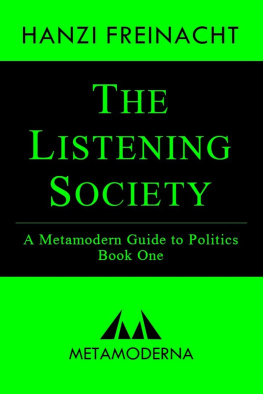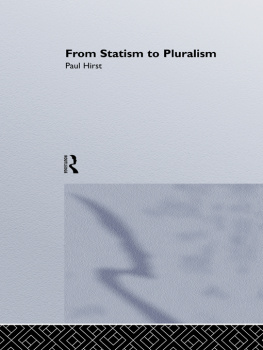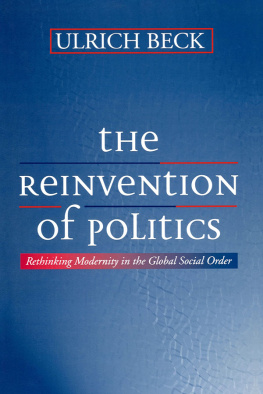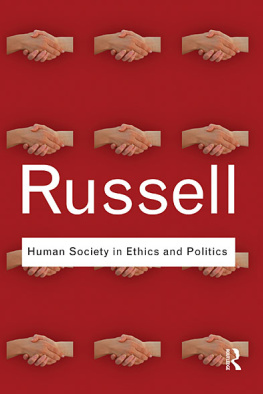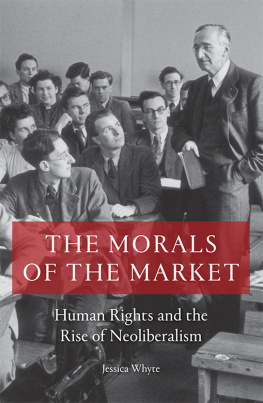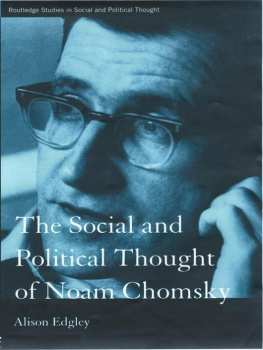HANZI FREINACHT
The Listening Society: A Guide to Metamodern Politics, Part One
Copyright Metamoderna ApS, 2017
All rights reserved. This book or any portion thereof
may not be reproduced or used in any manner whatsoever
without the express written permission of the publisher
except for the use of brief quotations in a book review.
First Edition, 2017
ISBN 978-87-999739-1-0

Metamoderna ApS | www.metamoderna.org
Our mission, in a nutshell, is thus:
To unite the many struggles
of the exploited bodies of the poor
with the struggles of the lost,
suffering souls of the rich world.
And to expand that struggle
to sustainability across time and space.
And to expand that solidarity
to fathom the vast suffering
and multiplicity of perspectives
of the animal realm in its entirety.
And to deepen the struggle
until it is reborn as play.
Contents
Introduction:
Appendix:
PROLOGUE
Yeah, yeah, I get it, I get it. Theres this talk about something called political metamodernism. It is said to be a new ideology replacing and outcompeting liberal democracy and capitalism as we know them. Quietly, its proponents suggest, it is all but completely trashing socialism, liberalism, conservatism and ecologism, each on its own terms, leaving many peoples feelings hurt in the process. Political metamodernism has the capacity to gradually, but profoundly, change the lives of countless millions of people for the better, by cultivating a deeper kind of welfare system and economypropelling us towards a saner, kindlier world. The welfare system part of this is called the listening society . All of this is said to slowly but surely be growing out of the cultural and economic development of the most progressive and advanced societies in the world, like the Nordic countries. And to understand and ally oneself with the listening society is both very useful to oneself and a service to mankind and all the other suffering animals. And it comes with certain risks, like all potent things do... But is it real ?
You have it all backwards, my friend. In a way, is it real is the dumbest question you can ask, if you quite understand what reality is. Reality is much more than the facts of the matter. The real reality resides at the crossroads of fact and fiction. It is born precisely at the point where our imaginations, the stories we tell ourselves, meet the facts of the world and put them into context. Political metamodernism becomes real by the rebellious act of telling a good story, a story that will both haunt and reward its listener.
The mix in this book is mostly fact and some dabs of fictionmeaning that I use emotions, dreams, aphorisms, mental images and some qualified guesses. I play with language and with the relationship with you, the reader.
But other than that, your summary was okay. Political metamodernism is the single most powerful ideology in existence in the world today and you would have to be an idiot not to want to learn about it. Whether you like it or not, whether you are for it or against it, you had better pay attention.
By the way, if the word ideology gives you the creeps, feel free to exchange it for way of thinking and feeling about society, which is something that we all undeniably haveeven you.
This book is about you; your own intellectual and emotional development, as well as your place and status in the world. But it is also about society and relationships, about other humans and animals, about how a deeper sociological understanding of the world can help you serve compassionately, and why this is so.
Mixing fact and fiction is of course what children and the insane do. But upon closer inspection, it becomes clear that everybody does it. The question is only how consciously and productively it is done. I use dabs of fiction to make this book come alive as a political and cultural current of change. The difference between this approach and drier, more traditionally academic books on social science is that, in this book, the fictional part is owned up to. We take Hanzis role as an intellectual less seriouslyand we take the necessarily fictional part of reality much more seriously. That is how the facts serve us best, with a spoonful of fictional sugar. But make no mistake; the bitter medicine must go down. And it does work.
Most political intellectuals, from Nancy Frazer to Milton Friedman, from Noam Chomsky to Arne Nss, put on these silly garbs to try to look serious and scientific, while they are all still emotionally invested in their ideas and have tearful (fictional) stories about what makes their own perspective the right one and themselves into the humble hero and servant of truth. I am hereby taking off that silly mask. And so should you, frankly. But how do you throw off the mask? By admitting that you are wearing itand then using it more deliberately.
I am just going to tell the story straight and let you play with it. Because thats where the action is. Thats where we change the world for real. Along the way we can have a beautiful, albeit dangerous, adventure. Politics, just like life itself, is always an experiment. We have to take risks. We have to be vulnerable to make a deeper impact for better or worse, to truly make a difference that makes a difference.
Political Metamodernism Is the Future
So I want to tell you about something that I call political metamodernnism. It is a new perspective on politics. It changes not only how we do politics, but also what the role of politics in society is in the first placeand of course, it sets new goals for what we want to achieve in society, and it provides explanations for why.
Very basically, political metamodernism tries to bring about the society that comes after , and goes beyond , what we usually think of as modern society. Take a modern country today, like Sweden, and consider how different it is todaypolitically, socially and economicallyfrom a century ago. And how very different its citizens are. Where did all the hackers, yoga people and feminist vegans come from, for one thing?
The Social Democrats of the early 20 th century had an ideologya vision, an idea of what the future welfare society might look like. In large parts, that society has successfully materialized. But since a few decades, we have no such visions or goalseven as the world is changing more rapidly than ever and the technological possibilities are much greater than before. So where are the major political visions?
Seriously. Where are they? The Left works only to maintain the welfare state, the Greens to maintain the sustainability of our current civilization, the libertarian Right to boost economic growth and the nationalist or conservative Right seeks to maintain the old nation state in the face of immigration and globalization. All of these movements and ideologies are stuck in the mindset of party politics that evolved from industrial society, with its classes and issues. None of them actually offer us anything new, or anything that might substantially improve our lives in a way that would compare to the building of the modern liberal democracy with a market economy and welfare state. What is the equivalent of this system in the society of the future, a society we know is globalized, digitalized and postindustrial? In which direction can and should our society evolve? Is that an unreasonable question? I dont think it is. I think its deeply unsettling that we, as humanity, are not having that conversation.
This is where political metamodernism comes in. Political metamodernism tries to achieve a society that is as different from today as todays Sweden is from Sweden in 1900. Everything is going to be different. For good or bad, people are going to vote differently, educate differently, work differently, live and travel differentlyeven love and socialize differently. We will have different ideas about the world and our place in it. Just being alive will feel different.

